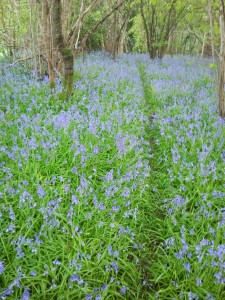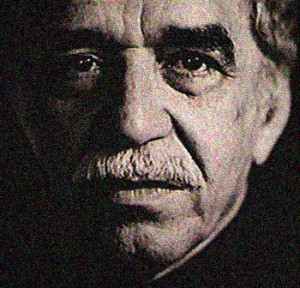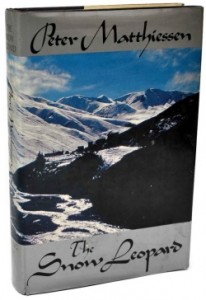Spring: The Blue Road into the Trees

“The bluebells in the beech woods that surrounded and disguised the embankment came as a shock. I had forgotten that they would be there, a soft purple rather than blue, as I came in from the bright sunshine of the fields and saw waves and islands of them spreading below the trees, not so much lighting up the forest as glowing within it: purple shadows.
They spread across the ridge. A heavy-seeded plant, bluebells travel slowly across the ground: it had taken many, many generations for them to cover such distance. The carpet of blue flowers managed to be a celebration both of the transience of spring and of the permanence of the English landscape.
I followed a path that was covered with beech-mast and threaded through with white wood anemones. Looking down through the trees at the wheat fields to either side, with the young wheat still tight in bud, the stalks shimmered blue under the green of their tops, so that when viewed from certain angles they looked like water, an effect exaggerated when the wind blew across the fronds and sent a ripple of green-yellow across the underlying blue.”
a seasonal extract from The Green Road into the Trees: An Exploration of England, which has just won the first Wainwright Prize for Nature & Travel Writing


